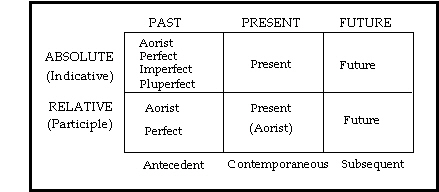Ask Mr. Religion
☞☞☞☞Presbyterian (PCA) 	
Gold Subscriber
LIFETIME MEMBER
Hall of Fame
Jesus is God a Requirement For True Faith
Jesus is God a Requirement For True Faith
I suspect Jerry just does not see the passage as stating something along the lines of...
"But these are written in order that you may continue to believe that Jesus is the Christ, the Son of God, and in order that believing you may continue to have life in his name."
We are going to heaven because right now we are truly believing. It is not "I believed three, thirteen, thirty years ago." But now, today we are holding on to Christ, who holds on to us with a much surer grip. How do we know this? Because we believe what He said. We believe it right now.
Believing is the only way to have (present tense) life. It is the only way you have ever had life. It is the only way you will have life in the future, even forever. Salvation (as we experience it) is by faith alone.
As I have noted, and Jerry fails to grasp, the purpose for which John wrote an account of Jesus’ glorious works was in order that the early church might believe the truth about Him (John 20:31a), and the purpose/result for which John wrote an account of Jesus’ glorious works was in order that by believing the truth about Him that the early church should experience true life in Him (John 20:31b).
The use and purpose of signs are markers of the literary context of John's Gospel. The first sign is performed in the presence of the disciples (John 2:11). And the desired response to the many of them is explained in reference to disciples (John 20:30). This implies that John has believers in mind. The immediate context also uses a disciple, Thomas, to show that persevering faith must confess Jesus as none other than God Incarnate (John 20:26-29). John spends so much time dealing exclusively with the disciples (chaps. 13-17) that it is difficult to see how he only had non-Christians in view.
Attempting to use this passage to argue regeneration does not precede faith simply ignores what the text is really all about.
AMR
Jesus is God a Requirement For True Faith
Indeed.. There isn't a Calvinist I know who would argue that a believer can stop believing and still have life in Christ. That's the whole point behind the P in TULIP.
I suspect Jerry just does not see the passage as stating something along the lines of...
"But these are written in order that you may continue to believe that Jesus is the Christ, the Son of God, and in order that believing you may continue to have life in his name."
We are going to heaven because right now we are truly believing. It is not "I believed three, thirteen, thirty years ago." But now, today we are holding on to Christ, who holds on to us with a much surer grip. How do we know this? Because we believe what He said. We believe it right now.
Believing is the only way to have (present tense) life. It is the only way you have ever had life. It is the only way you will have life in the future, even forever. Salvation (as we experience it) is by faith alone.
As I have noted, and Jerry fails to grasp, the purpose for which John wrote an account of Jesus’ glorious works was in order that the early church might believe the truth about Him (John 20:31a), and the purpose/result for which John wrote an account of Jesus’ glorious works was in order that by believing the truth about Him that the early church should experience true life in Him (John 20:31b).
The use and purpose of signs are markers of the literary context of John's Gospel. The first sign is performed in the presence of the disciples (John 2:11). And the desired response to the many of them is explained in reference to disciples (John 20:30). This implies that John has believers in mind. The immediate context also uses a disciple, Thomas, to show that persevering faith must confess Jesus as none other than God Incarnate (John 20:26-29). John spends so much time dealing exclusively with the disciples (chaps. 13-17) that it is difficult to see how he only had non-Christians in view.
Attempting to use this passage to argue regeneration does not precede faith simply ignores what the text is really all about.
AMR

